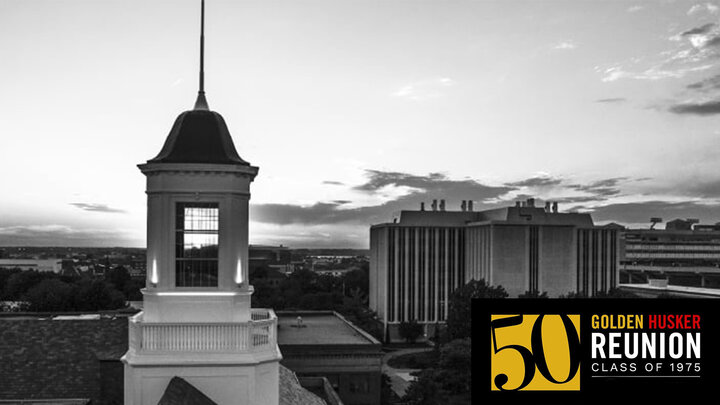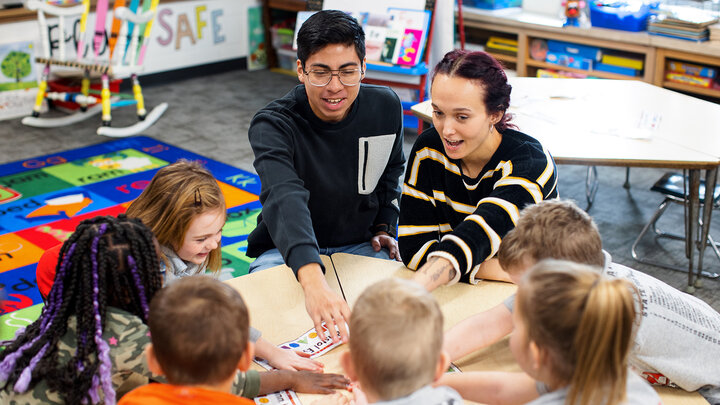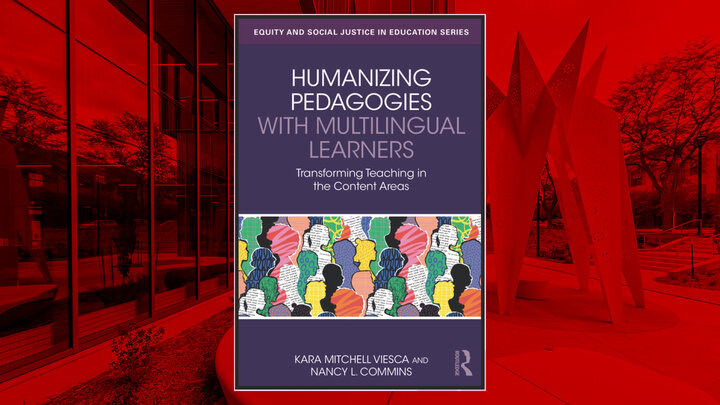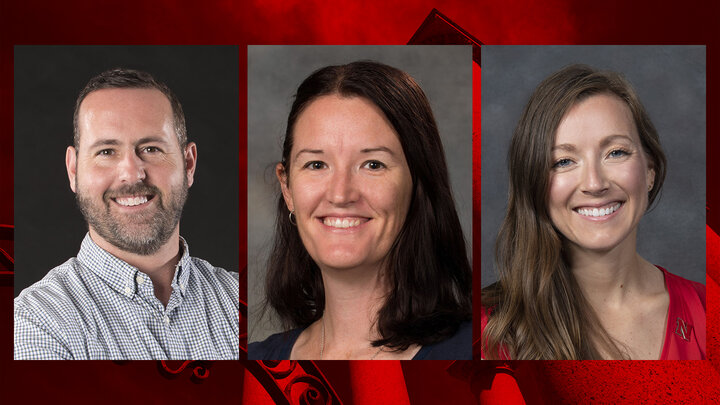Fifty years after graduating from the University of Nebraska-Lincoln, Mary Kudlacek de Souza (’75) is reflecting on the people, experiences, and lessons that have shaped her life and career. From studying Consumer Affairs and spending a decade with the Nebraska Cooperative Extension service, to now owning Village Needleworks in Omaha, Neb., Mary has embraced lifelong learning and creativity at every step. In celebration of the Golden Husker Reunion of the Class of 1975, Mary shares the wisdom she’s gained over 50 years as a proud Husker.
What drew you to attend the University of Nebraska–Lincoln? What was your field of study?
I grew up in Lincoln and always knew I would attend UNL. Initially I was interested in fashion. I sewed many of my clothes in junior high, senior high, and in college. I was also intrigued by interior design. I don't recall what it was that led me to “consumer affairs”, but that’s what I settled on. At the time, I felt my area of study wasn’t seen as particularly challenging or valuable. But looking at some of today’s youth, I’ve come to appreciate how well it prepared me to be an intelligent, practical consumer—with a solid understanding of organization, personal finance, and nutrition. There are so many people today who lack these essential life skills.
Were there any standout memories from your time on campus? Were you involved in any groups or organizations?
My interest in sewing led me to volunteer in the drama department creating costumes in the evenings. In addition, I was the costume designer for the Centennial College’s production of Marat Sade.
Was there a particular class, professor, or experience that had a lasting impact on you?
I don’t recall one specific class, but I do remember that Dr. Joan Anderson encouraged me to apply for a master’s program at Kansas State University. At the time, Dr. Richard L. D. Morris was head of the Department of Family Economics. Known as “Mr. Truth-in-Lending,” his work helped lead to the passage of both federal and state Truth-in-Lending and Truth-in-Savings legislation. These laws require financial institutions to clearly disclose the true cost of loans and the actual interest rates on savings accounts. I applied and was awarded an assistantship in the Department of Family Economics at Kansas State University.
You spent over 10 years working with the Nebraska Cooperative Extension Service. Can you share more about that work? When I applied to the Extension Service, I requested placement in either Lincoln or Omaha. A position opened in Omaha, but in the foods department. I came with only a few undergraduate nutrition courses under my belt. With no internet at the time, I re-educated myself by diving into every book I could find on food preparation, safety, and nutrition. It was such a rewarding job, and I was fortunate to work alongside a talented team of agents. Just a few weeks before the birth of our third child, I realized I could no longer give both my work and my family the attention they deserved, and I made the difficult decision to resign.
In 2007, you purchased Village Needleworks in Omaha, what inspired you to take on that new venture?
I was first introduced to needlepoint in college and dabbled in it off and on over the years. Our two older children were avid tennis players, and I often found it hard to read while watching their clinics and matches. One day, I noticed another mother needlepointing on the sidelines and realized it was something I could return to—and I did.
Toward the end of 2006 the owner of Village Needleworks announced her retirement. At the time, our two younger children were in high school—a senior and a sophomore. I had always dreamed of owning a business and I saw this as the perfect opportunity to pursue that goal.
How did you get into the art of needlepoint?
I was a camp counselor the summer between my junior and senior years in college. My co-counselor was from Omaha and had to pick up some threads at a needlepoint store in Colorado Springs. I accompanied her and thought I could learn this hobby. So, I purchased the supplies and created my first original masterpiece.
What is your favorite part of owning the shop? What is the most challenging?
The best part of owning this shop is the friendly environment. Our customers have a way of becoming part of our needlepoint family. We share happy times with them as well as lend an ear during their difficult times. We serve as a support system, but we are always sharing information to better our lives.
The biggest challenge is learning when to turn off that part of my life and switch gears toward friends and family.
How has what you learned during your time at UNL helped you on your life’s journey (personally and professionally)?
It taught me to open myself up to learning new things and experiencing new adventures. You can never possess enough education.
What would you tell your 1975 self if you could meet her for coffee?
There are unexpected opportunities that lead to self-discovery and allow you to contribute meaningfully to your community.
What advice would you give to today’s UNL students and recent graduates, especially those unsure where life might lead them?
Work hard. Keep an open mind. Embrace new experiences. Build your network—it will empower and inspire you.
Fifty years is a remarkable milestone! How do you feel looking back on your time since graduating, and what’s on the horizon?
I’m proud of what I’ve accomplished—far more than I ever imagined. I still skip happily to work each day, surrounded by a wonderful staff and fulfilled by the many friendships I’ve made through my business. I hope to be blessed with good health to continue doing what I love—and the wisdom to know when it’s time to accept a new direction.
In addition to my passion for needlepoint and business management, I have been happily married to my husband, Euclid, for 44 years. We have four children and four grandchildren, who are my greatest hope for the future.
College of Education and Human Sciences
AlumniNews




